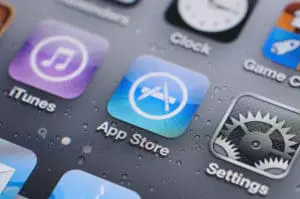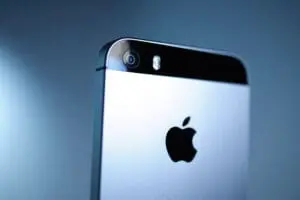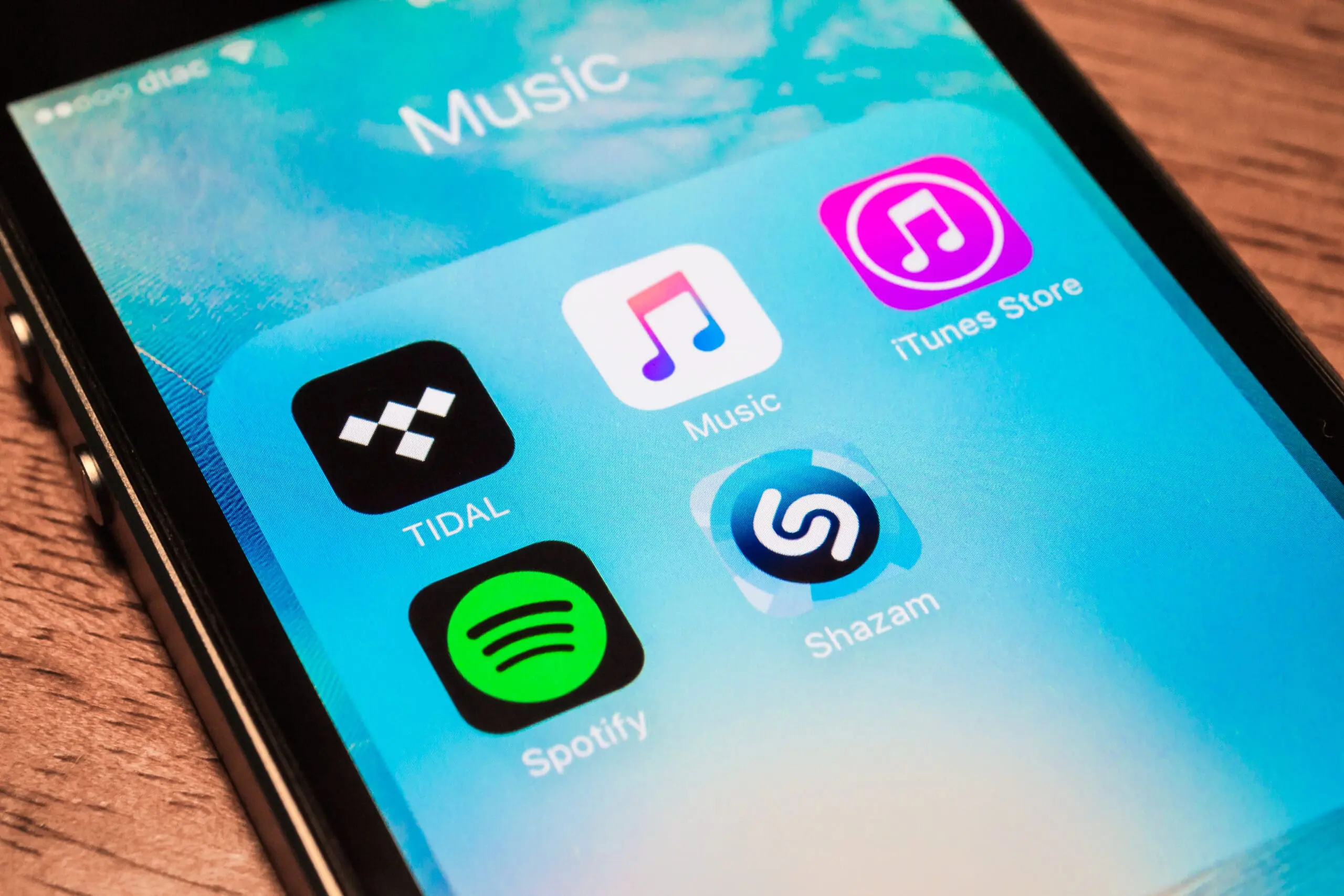Apple fined £1.5 billion by EU over music streaming competition
Tech giant Apple fined for not allowing music streaming apps like Spotify to tell customers they can subscribe for cheaper if they do not use Apple’s App Store.
Apple has been fined 1.8 billion euros (£1.5 billion) by regulators in Europe for not allowing music streaming apps like Spotify to tell customers they can subscribe for cheaper if they do not use Apple’s App Store.
Apple banned app developers from ‘fully informing iOS users about alternative and cheaper music subscription services outside of the app’, said the European Commission.
By doing this, it said that Apple had abused its dominant position in the market for distributing music streaming apps, and had broken EU antitrust rules in the process.
Rachael Kent, a digital economy and society lecturer at King’s College London, says this is a ‘significant victory for consumer rights and fair competition.’ She also warns:
‘It underscores the urgent need for accountability and transparency from the tech giants who dominate the market, and sends an unequivocal message that monopolistic practices will not be tolerated.
‘Apple’s actions, as detailed by the EU’s investigation, have not only stifled competition but have directly harmed consumers by concealing alternative music subscription services.’
Kent has a lawsuit against Apple on behalf of UK consumers and businesses for excessive App Store charges. This will go to trial in January 2025.

Spotify complaint about Apple to EU
The £1.5 billion fine follows a long-running investigation triggered by a complaint from Swedish streaming service Spotify five years ago.
Spotify claimed that Apple limits choice and competition by charging a 30% fee on purchases made through the App Store.
Spotify called this an unfair ‘tax’ which benefits Apple Music, the tech giant’s own music platform which does not get charged the same fees. It also said that it is not allowed to tell customers there are cheaper ways to subscribe outside the App Store.
The European Commission said Apple banned app developers from ‘fully informing iOS users about alternative and cheaper music subscription services outside of the app.’
That is illegal under EU antitrust rules. Apple behaved this way for almost a decade, which meant many users paid ‘significantly higher prices for music streaming subscriptions’, the commission said.
Apple said it would appeal the decision, saying: ‘The decision was reached despite the Commission’s failure to uncover any credible evidence of consumer harm, and ignores the realities of a market that is thriving, competitive, and growing fast.’
UK government to clamp down on big tech dominance
‘This is a pattern of behaviour that extends beyond music and into a host of other Apple services’, said Kent. ‘Most notably, consumers have lost out on billions from the tech giant’s abuse of its dominant position in relation to its App Store.’
The new Digital Markets, Competition and Consumers Bill that’s currently working its way through UK parliament, and is expected to come into force in the Autumn, recognises that there are problems with market dominance of big tech.
Amongst other powers, the bill would give the UK competition watchdog more power to hand down hefty fines to global companies like Apple, Amazon and Google of up to 10% of their global turnover.
The government is claiming that the bill is expected to save UK consumers £9.7 billion over 10 years. But regulators can’t directly award compensation to consumers who have been left out of pocket because of anti-competitive practices.
Apple faces two separate UK compensation lawsuits over app store fees
Dr Rachael Kent, with law firm Hausfeld LLP, accuses Apple of unfair and excessive levels of commission – typically 30% – on apps and in-app digital content. She’s claiming £1.5 billion in compensation for the costs that have been passed onto consumers and businesses.
Lesley Hannah, a partner at Hausfeld said: ‘Yesterday’s decision is a really positive development – however, it only addresses one of a number of different types of anti-competitive measures that Apple employs to insulate itself from competition and enable it to charge excessively high commission for App Store transactions.’
For the benefit of UK consumers, Kent said: ‘Whether regulatory action or collective redress in the courts, we need to use every tool at our disposal to ensure that Apple treats its users with fairness and respect.
‘Let this ruling embolden us to advocate for change, holding the likes of Apple to account for their significant influence on our digital lives!’
Another similar UK collective claim aims to recover £785 million in damages for UK app developers.
Professor Sean Ennis, a professor of competition policy, with law firm Geradin Partners, filed a claim against Apple for abusing its dominant market position to charge app developers excessive commission on apps and in-app purchases of digital content distributed in its App Store.
For more on Dr Rachael Kent’s fight against Apple
Kent talks to Hausfeld about her claim as part of her new podcast series: ‘Digital Health Diagnosed: Your dose of tech wellbeing’ Episode 3 on Kent v Apple. You can listen and watch on Spotify & YouTube.
Related claims

Apple App Store
Apple faces allegations of excessive App Store charges of £1.5bn. Sign up to stay updated if you bought apps on your iPhone or iPad since 1 October 2015.

Apple iPhone
Apple accused of selling iPhones with defective batteries that caused performance problems in £853m legal claim. Sign up for updates.

Amazon & Apple
Amazon and Apple accused of striking secret deal to increase the cost of Apple products costing UK consumers £500 million. Sign up for updates.


